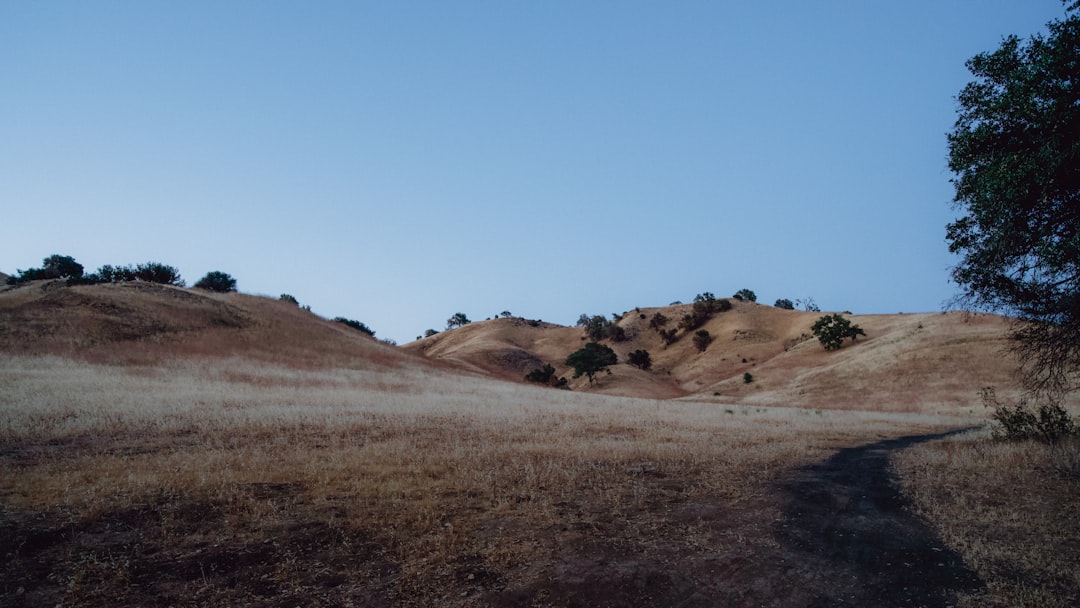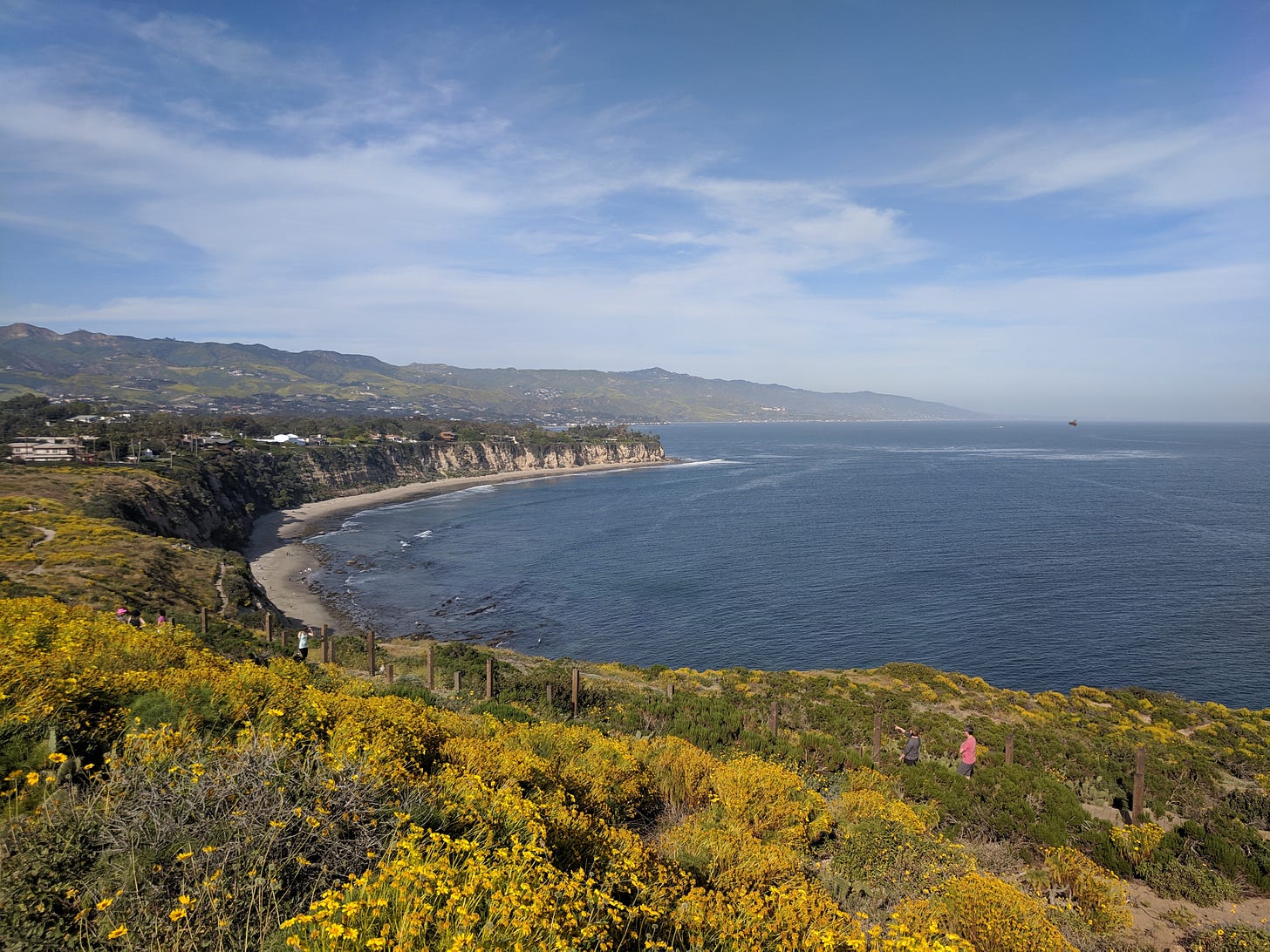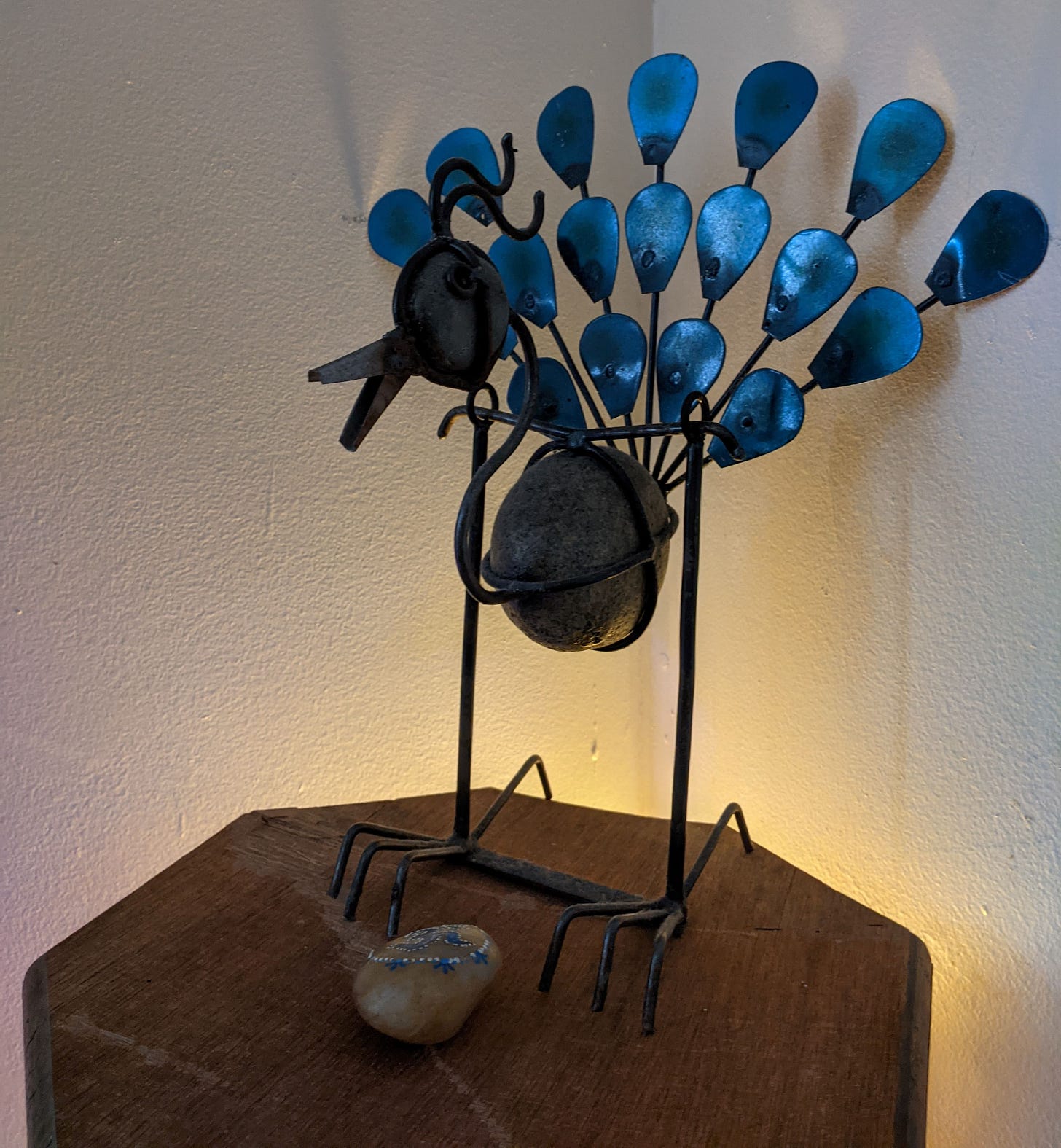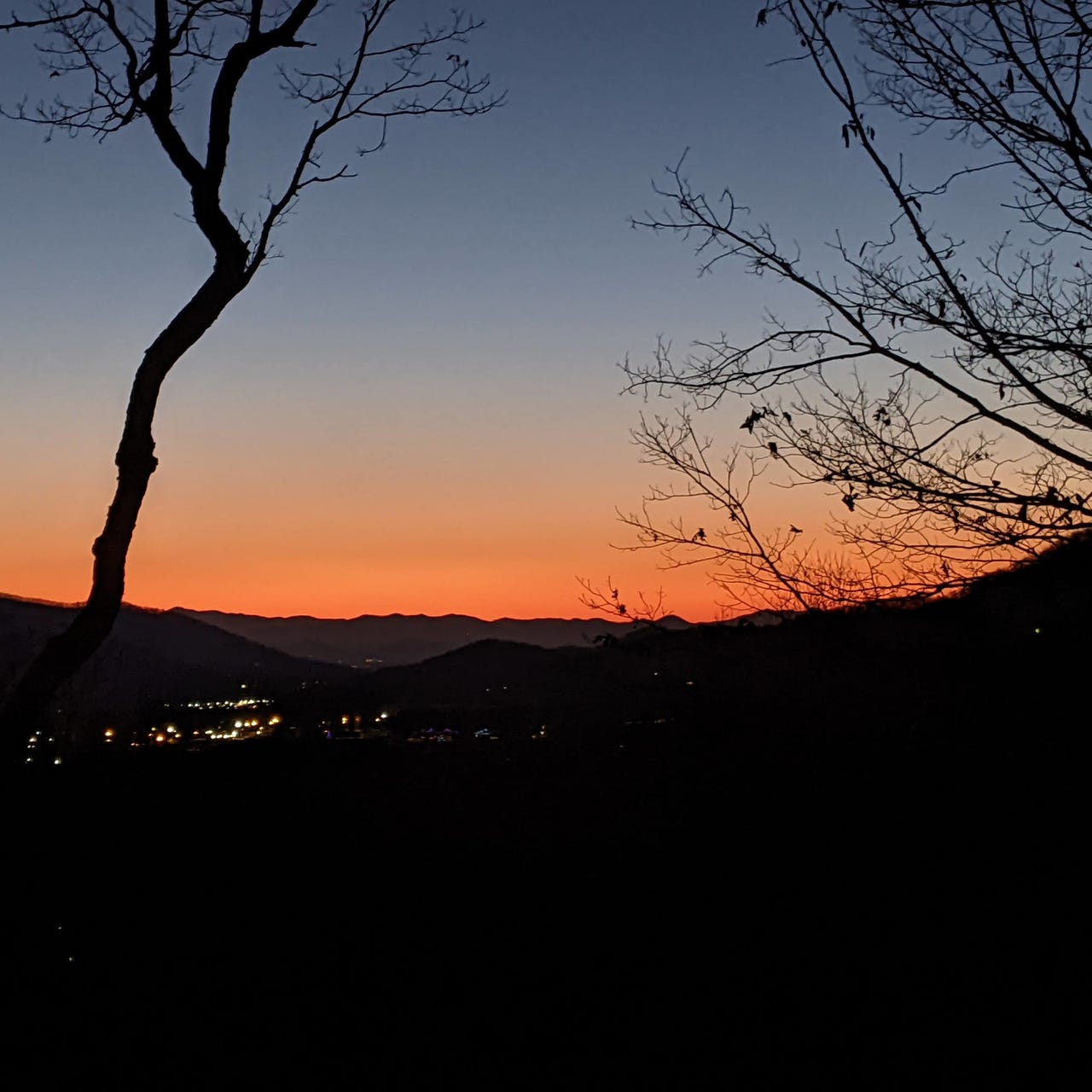Confessing Grandiosities
The hubris of battling inflation with inflation. Part two of four.
Listen to this on Spotify, iTunes, YouTube, and most podcast feeds.

In part one of this series, I talked about psychedelic risk-taking and my hope to see more psychonauts risking self-critical honesty.
In this piece, I’m going to explore what I believe could be some of the subtler long-term spiritual and psychological risks of psychedelic use. So it’s only fair that I start with a story of my own hubris.
Hubris: The Real Rite of Passage
A decade ago, I was in my early twenties living in Los Angeles. Speaking of hubris, I was trying to hack it in the entertainment industry (spoiler alert—I’m now in grad school). Some of my friends wanted to do shrooms, and since I was the most experienced psychonaut among us, I ordained myself their shaman. Being so wise and so responsible, with a whole five trips under my belt, I knew I was ready to take twice as much as I had ever taken.1
My priesthood would be short-lived. In under an hour, I had lost my mind, my phone, and yes, my clothes. That’s because, as I remember thinking with such clarity, “All possessions do is possess me” (little did I know I had stumbled upon one of the rules of St. Benedict). After a rigorous debate, my friends persuaded me to put my pants and shoes back on. I then sprinted away down a hill, galloping like a golden retriever off into freedom.
Whatever I had of an executive function was lost, along with any idea of where my friends were. I was just along for the ride, as if something more demonic than my old textiles was possessing me. For the next six hours, I became convinced that I was living in a lucid dream and could manipulate the world around me. While I mostly just used my powers to roll around in an empty field and think about fear, I really could have done any number of worse things. It was enough to scare me off from psychedelics altogether, and I assumed I would never take them again. I wouldn’t for five years.
I’ll share the full story again on a podcast sometime, but it took a series of minor miracles and major parables to find my way home with neither phone nor shirt. It was another miracle2 that my friends weren’t arrested when they asked the cops for help finding me. I’m very lucky that the worst material consequences were a $100 cab ride back to North Hollywood from an ex-New Age cabbie and getting banned from Malibu Creek State Park. So much for that wedding destination.
While I still feel embarrassed about Malibu, I don’t share that story as an example of an unpreventable consequence of tripping. There were many things I did wrong that, as psychonauts sometimes like to say, show I didn’t “respect” the power of psychedelics. I learned that respect the hard way, along with the fear of God.
I share it because in the decade since, I’ve learned that I was just living out a trope. Being smacked in the face by “I know what I’m doing” is even more of a rite of psychedelic passage than righteously quitting your day job. At the time, I was sure I did respect psychedelics. Some folks get off as easy as I did, but sometimes, people get themselves or someone else seriously harmed, including developing HPPD or, yes, sometimes violent deaths from people with little to no prior indication for it. I thank God I happened to not have that proclivity.
But what strikes me about psychedelic hubris is that even after dangerous trips, this does not always lead to curiosity about whether there may be any lingering hubris about long-term effects, or whether there may be hubris in the collective psyche of the movement. Is contemporary psychevangelism disrespecting their societal power?
Non-Specific Personality Amplifiers
One of the most popular models of psychedelic action, coined by psychiatrist Stan Grof, is the idea that psychedelics are “non-specific amplifiers.” While this usually refers to how a given psychedelic experience can randomly accentuate psychic content during a trip, this also plays out in randomly amplified personality changes over years of regular use. Some people end up relatively well, in fact, sometimes they’re even wonderful people. But we have to admit that many other long-time users are not so mentally healthy, and we have to keep wrestling with the implications of this fact.
It seems like psychedelic narcissism has gradually become more and more discussed each year. In fact, it’s a popular ingroup lament that psychedelics are supposed to help kill your ego, but some personalities only get bigger. Yet I believe this is still conceived too narrowly. Narcissistic inflation is not just Trumpian style self-promotion and attention-seeking behavior. In fact, some forms of narcissism are intensely attention-avoidant. Diversities of psychedelic ego inflation are more plentiful than may appear. Sometimes it even makes you start a newsletter.
For whatever reason, psychonauts are often reticent to blame the drugs for any of these ego inflation effects. Maybe it’s easier to blame a victim when a victim is a blatant, arrogant-style narcissist because it’s hard to see them as victims. But I have to believe grandiose psychedelic narcissists are victims in the sense that they surely would not have asked to turn out the way they did. I mean, I’m a Bible guy, but I don’t think many people would knowingly take Satan up on his kind of offer. It’s not like he introduces himself with a business card.
No, I don’t suspect anyone starts taking psychedelics with the belief they’ll turn into Jafar: an all-powerful genie in his own mind but imprisoned by the source of his power. That kind of transformation happens one dumb wish at a time.
But that grandiosity is easy to see only when you’re not experiencing it. It’s really hard to see grandiosity when it’s your grandiosity. By that point, you’re already halfway down the lamp.
Redefining Grandiosity
So when I think about mitigating psychedelic hubris, I’m not worried about creating therapeutic settings to prevent users from running around naked. That’s the kind of logistics I can help with. And while I’m very concerned about the heightened risks of abuse by therapists and practitioners, I don’t have much to add to that topic that others aren’t already covering.
I personally find myself most curious and concerned about what fuels that abuse and other psychedelically-induced evil. In my best guess, it’s a matter of unconscious grandiosity. I’m not a psychologist, I’m just a guy who has thought about spirituality too much, and so if you have anything to clarify or correct about my thinking below, feel free to drop a comment.
The post-Jungian analyst Robert Moore—who also trained in Freudian, Adlerian, and Kohutian theory, if that means anything to psychology nerds—defined grandiosity a little differently than how most people think about it, so let’s clarify the definition. For our purposes here, we have to disassociate it from being synonymous with boisterousness, boldness, or self-importance. It includes those things, but it’s more. “Grandiose,” etymologically, just means “too big,” and so “grandiosity” can be better thought of as “inflation.” This inflation is trait-independent, so it can be inflation of psychological traits that result not only in socially obvious ways. Grandiose inflation can lead to depression, or high anxiety, excessive shame, and even shy grandiosity. We want to look out for grandiosity, then, with anything in the personality that seems outsized to the point of causing harm.
In Moore’s schema, all humans deal with these unconscious inflations every day of our lives, regardless of what substances we take. One’s personality becomes possessed by unconscious archetypal forces that (like any good Jungian) we learn about through comparative mythology across cultures. If we’re religious, we use our religious symbols, rituals, and spiritual practices to consciously transform these unconscious spiritual processes, and Moore argues to do this in conjunction with therapy.
This spiritual and psychological grandiosity also does not only happen in terms of individual inflation. For many people, per Moore, grandiosity is more active on the group level rather than on the personal level.
This might be why some religious people can be the kindest, least full of themselves people you know while having a grandiose cosmic belief that only their group will be granted eternal divine favor, or that only their group has true enlightenment into the nature of the universe. Tribal grandiosity occurs in non-religious groups too. It includes things like racism, sexism, and ideological extremism, along with more mundane and relatively harmless grandiosity like sports fanaticism. This includes intense sports depression, which you are familiar with if, like me, you grew up a Charlotte Hornets fan.
So it’s important to note and emphasize that unconscious grandiosity is not caused by psychedelics, because it’s something we all either reckon with, suppress through other forms of grandiosity, or become consumed by.
Can Psychedelics Treat Grandiosity?
Okay, so if psychedelics do not cause human grandiosity, do they help manage it?
To go back to Grof, it seems like psychedelics non-specifically amplify parts of our psychic content, including unconscious content. If grandiosity is already a result of unconscious inflation, amplifying it even further seems like it would only make matters worse.
But maybe sometimes it can help. For one, it seems like for many people, the direct experience of a fungible consciousness and the awareness of previously subconscious thoughts can lead to something of a spiritual awakening. After this, we could then possibly work on the rest of our grandiosity in a conscious way.
Further, in some acute cases, it seems that a psychedelic experience might allow you to see one of your grandiosities, like an addiction or a depression, from the outside. Maybe it brings some specific contents to our consciousness in a way that we can then work with, or “integrate” them. And as the true believers will tell you, psychedelics may also give us a glimpse outside of our tribal grandiosities, such as an exclusive religious worldview.
Science may never be able to accurately, reliably, and permanently treat different forms of these entrenched grandiosities, but it does happen. Some depressions leave, some addictions are beaten, and some spiritual lives are ignited. And thank God! This is why despite my deep fears about the grifting hype-machine, I can’t rule out a limited use case for psychedelics.
But what happens when one finds these experiences so transcendent that one continues tripping throughout their life?
It seems to me that over time, while we might treat some grandiosity in a given trip, with each subsequent trip new psychedelically-induced grandiosities then enter where the old ones left. In fact, this happens quite often during the exact same trip.
I wrestled with this dilemma earlier this year when I wrote to Thomas Merton, who believed psychedelic mysticism would not transcend egos, but rather expand them. I argued with his ghost that ceremonial ayahuasca use might be different by emptying us of our false inflations. Merton’s ghost never got back to me, but I continue discovering more of his thoughts on the topic, and I keep wrestling. For now, I’m concerned that even if my earlier optimism was correct, ayahuasca (for one example) might be a rather volatile and unpredictable means to treat our grandiosity outside of its original tribal context.
Indeed, it would be a mistake to lump all psychedelics and all contexts as equally risky for inflation. As Joseph Calabrese described in his ethnography A Different Medicine, it seems that the spiritual and medicinal use by indigenous peyotist groups might have a cultural context—inherited, cultivated, and lived fully in their communities—that allows for successfully treating alcoholism. It seems likely that those who were born into a gradually developed tradition over many generations with a continuous theological conversation would create an intuitive, communal wisdom that attunes and corrects individual grandiosity.
I am skeptical that most Westerners will be able to successfully create similar deflationary conditions. If nothing else, it’s because the very act of creating containers, rather than inheriting a tradition, is an attempt to seek the Divine how we want it to be, and in doing so, create God in our own image. We want the Spirit to come to us on our terms. But anything that comes to us on our terms isn’t God.
Is this all fair or accurate? I really don’t know. This is all massively speculative, I’ll admit. But I can’t help but believe that too-regular psychedelic use leads to non-specific amplification over long periods of time, adding more grandiosity to our personalities in ways we’re totally unaware of. If not to our individual grandiosity, then maybe to our ingroup grandiosity, resulting not in a personal Messiah complex, but a collective Messiah complex.
If it is true, psychedelic inflation appears to be nothing new. In 1997, Steven Novak published a paper describing the concerns of Sidney Cohen, an LSD researcher from the ‘50s and ‘60s:
By 1963 a number of local LSD investigators who were heavy users themselves had fallen afoul of legal and medical authorities; some had even been hospitalized. Cohen was bitter about the excesses of LSD psychotherapists. He charged that LSD therapists “have included an excessively large proportion of psychopathic individuals.”
As Will Hall further elaborated last year:
At first, Cohen was an LSD enthusiast whose reports contributed to the early positive media attention about psychedelics benefitting Hollywood stars and the elite. But Cohen grew more cautious when he saw therapists in Southern California become enamored of LSD’s power, obtaining LSD from manufacturer Sandoz on a pretense of being researchers and then misusing it with clients. Cohen became aware of cases of therapy abuse, and it became clear there was more harm to clients going on than was made public, hidden behind what Novak called a “veil of silence” among psychiatrists and therapists.
In a debate with the avid LSD proselytizer Timothy Leary, Cohen warned that psychedelics “expand one’s gullibility.” For Cohen, the psychedelic state was a “completely uncritical one” able to “overwhelm certain credulous personalities….the discriminating, critical capacity is lost,” he wrote. “The ability to observe oneself, to evaluate the validity of one’s ideas and swift flowering fantasies, is lost.”
That said, it would be wrong to say every person who regularly sits in a plant medicine ceremony is some unhinged narcissistic maniac. Right now, in my heart, I am thinking of people I love who regularly work with such plants.
Nevertheless, I worry about the collective hubris at hand, that we have not thought through potential unknown downsides, that we are not attentive enough to history, and that we are not living in accordance with our true limits. And I have to own the limits of my own knowledge here and confess there are many things I don’t know. Still, I wonder if repeatedly treating mental illnesses with psychedelics is a faulty premise, because whatever grandiosity we treat, we might just be adding more back in.
Closing Confessions
While the purpose of this four-part series is to lay out my most fundamental psychedelic concerns, it would be unfair if I didn’t confess a few of my own varieties of psychedelically-enhanced grandiosity. I hesitate to go here because one of my pastor mentors told me I’m too hard on myself. “He’s so right,” I thought, “I suck at self-compassion.” While psychedelics have sometimes temporarily relieved this symptom, I think they’ve only made it worse in the long run.
In the past decade of off-and-on psychedelic use, I’ve since suffered from perpetually high sensitivity, periodic depression, inconsistent discipline, a little more anxiety than I care for, lower self-esteem than seems necessary, and plenty of delusions of personal and tribal psychedelic grandeur. I was also subtly (and not so subtly) manipulative, mostly through passive styles of conflict-avoidance, and was either in denial about it or justified it as being necessary for the greater psychedelic movement. In the end, my psychedelic “mysticism” was just moral confusion with a good playlist. But on the plus side, I can now play guitar and own two pairs of peacock pants.
If I may balance out this neuroticism with a bit of confidence, I actually do feel quite hopeful, grounded, and becoming slowly more free of these traps. I can even feel grateful for the gifts of my psychedelic experiences beyond those sweet, sweet pants. I still sometimes wonder whether my renewed relationship with God, the most important thing in my life, would have been possible without them. I do still have many regrets, and they’re not ready to share, and I feel blessed to have whatever’s left of my sanity. But I no longer suffer from intense regret over whatever I lost from those years. I can say where my mistakes and suffering may have abounded, grace abounded more.3
In even more good news, these traits also seem to get less intense the farther away I get from tripping. That was true when I took five years off, and it’s true again now. But it’s also much different now: the purpose of this newsletter is not to get into my faith, but I can witness firsthand how prayer has done wonders to help me treat these issues better than anything else in my life ever has, including therapy (but if that works for you, no shade). I now have a lot of hope I can deal with my psychic inflations, though I will mess it up every day. And if you can relate to any of my baggage, damn I’m sorry, but I want you to believe you can have hope too.
Here’s another confession: if repeatedly using psychedelics for mental health is a flawed premise, the title of this newsletter is just as flawed a premise. The truth is, I’m not easily candid. And I’m no different than anyone else in that I find it impossible to be perfectly candid about anything, because the truth is painful to see and sometimes even more painful to tell. When I’m not in Malibu on six dried grams, my latent vulnerable narcissism hates feeling naked. And sure, I can speak in false candor that gives me spiritual pride quite easily, but perfect Candor would be the conveyance of unfiltered reality as-it-is. But no matter what we swear on Bibles in courts, the Whole Truth is something none of us possess, much less speak.
And so in fighting grandiosity with as much candor as I can muster, I have to make sure my grandiosity has not merely flipped orientations. Despite my worst intentions, I was never going to save the world with psychedelics, so I don’t want to be deluded that it’s my job to save the world from psychedelics—even if I wanted to. Candor pays attention to all the types of spiritual balloons we humans inflate in order to empty them, including mine.
So to avoid any further inflation, here’s something more grounded: I’m still trying to learn that fighting evil with evil just gets evil off. The hydra is the perfect little dragon for showing how violently opposing evil just makes evil grow a head, sometimes on our shoulders. And when it comes to dealing with psychedelic grandiosity on a spiritual level, fighting inflation with inflation just makes us burst. Evil inflates. Candor unties knots to free us from the hot air.
This is part two of a four-part series. Here are parts one, three, and four.
I can’t emphasize enough how dumb this was.
White privilege.
Romans 5:20





